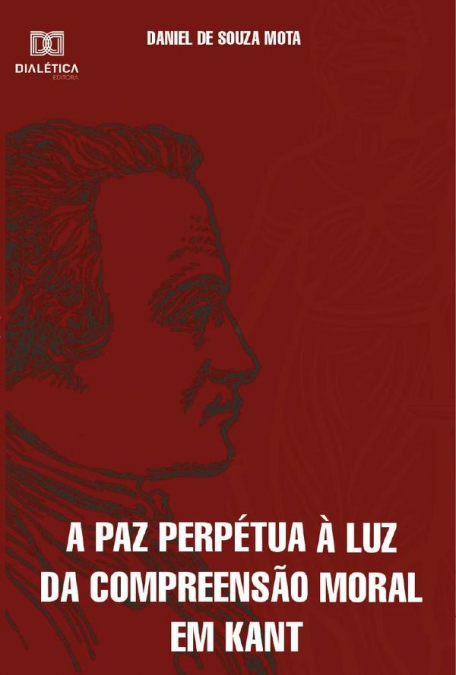
Daniel de Souza Mota
A presente obra tem por objetivo abordar o tema da reflexão moral no escrito político de Kant sobre A Paz Perpétua. O trabalho parte de uma abordagem analítica e interpretativa da filosofia moral de Kant, especialmente desenvolvida pela Fundamentação da Metafísica dos Costumes, com algumas incursões na Crítica da Razão Pura, para, em seguida, por em destaque o seu desdobramento na reflexão sobre a filosofia política que discorre sobre os seus fins, sua estrutura e os meios para alcançar a paz entre as Nações.Para tanto, são trabalhados os conceitos sobre a compreensão da moral em Kant como o valor da boa vontade, a lei moral e as fórmulas do dever, destaca-se a seguir a necessidade da paz permanente: como os argumentos para a paz e a ideia de cosmopolitismo esses argumentos trarão sustentação moral sobre a paz perpétua, Kant entende que a paz permanente é um processo a ser desenvolvido ao longo da caminhada humana, tendo como meta a construção do sujeito autônomo e moral, portanto, livre. O sujeito da paz deve constituir-se conforme tais preceitos, garantidos por meio de uma moral primorosa que lhe tire do estado da menoridade e lhe conduza à maioridade, em busca de um Estado cosmopolita, que lhe garanta a paz permanentemente. Segundo a teoria kantiana, a sociedade não poderia ter outra constituição que não fosse republicana - por estar fundada sobre princípios de liberdade, de dependência de uma legislação comum e de igualdade dos cidadãos entre si. Quando sujeito e Estado estiverem em plena harmonia, onde não haja injustiças nem privilégios, estará da mesma forma, se descortinando o caminho para a implantação do que Kant nominou Estado das Nações. E, a partir deste, quiçá para a construção do Estado Mundial Cosmoético. 10